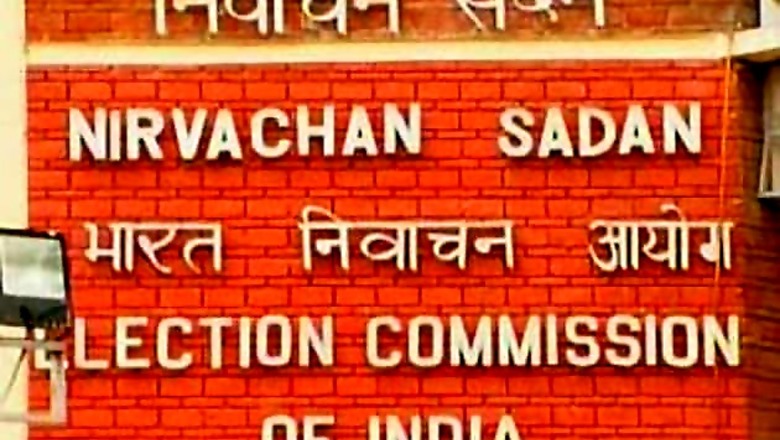
views
New Delhi: The Election Commission guidelines making it virtually mandatory for political parties to deposit their funds in banks and not to exceed ceiling limits in financial assistance for candidates to ensure transparency and accountability came into effect on Wednesday. The Election Commission order of August 29 in this regard under Article 324 of the Constitution (superintendence, direction and control of elections) was part of a set of comprehensive guidelines on transparency and accountability in party funds and election expenditure. The poll body had said that guidelines will come into effect from October 1.
Under the guidelines, the treasurer of a political party is now required to ensure maintenance of accounts at all state and lower levels and consolidated accounts at the central party headquarters. The accounts maintained by the treasurer shall conform to the guidance note on accounting and auditing of political parties issued by the Institute of Chartered Accountants. The annual accounts shall be audited and certified by certified chartered accountants as required under the Income Tax Act.
Under the guidelines, a party should ensure that no payment in excess of Rs 20,000 is made to any person or company in cash, except in a village or in town not served by a bank. Also it will not apply to payments made to any employee or party functionary towards salary, pension or reimbursement of expenses or where cash payment is required under any statute.
Referring to the Representation of the People Act provision regarding ceiling for election expenditure of a candidate, the EC guidelines make it clear that such assistance from a political party shall not exceed the prescribed ceiling. "Any payment in this regard by the party shall be made through crossed account payee cheque or draft or through bank account transfer and not in cash," says one of the guidelines. While the recognised political parties shall file all reports, namely the contribution reports in Form 24A, the audited annual accounts as certified by the chartered accountants and the election expenditure statements with the Commission.
The unrecognised parties shall file them with the chief electoral officer of the states. The EC said that in order to bring uniformity, all political parties shall submit to the Commission or to any authority mentioned by it a copy of the annual accounts with auditors report for each financial year before October 31 of each year. The Income Tax provisions do not allow any deduction on the contributions made in cash by any person or company to a political party.
Accordingly, the Commission guidelines say, the political party shall maintain names and address of all such individuals, companies or entities making donation to it excepting petty sums donated by public during rallies. Further, any amount or donation received in cash, shall be duly accounted in the account books deposited in the party's bank account within a week of its receipt. However, the party can retain a reasonable amount required for day-to-day functioning and for defraying cash expenses.
The Commission said concerns have been expressed in various quarters that money power was disturbing the level playing field and vitiating purity of elections. Noting that it is desirable for political parties to observe transparency and accountability in respect of funds raised and expenditure incurred both during elections and in other times, the Commission said it is necessary and expedient to provide guidelines for bringing that.

















Comments
0 comment